Wondering what project management tool is the right fit for your personality type? We’re giving you our best predictions! 🔮
In this video, we’re going over six different personality types and suggesting what we think would be the best tool to help each type migrate to a digital platform.
Think we’re wrong in our guesses here? Are you more of a “Bulletinaire” or an “e-Inbox Hoarder”? Have you made the switch to one of these tools and felt it was a better fit than what we suggested? Let us know!
*Some links contain affiliate links.
Let’s dive in.
Personality Type #1: The Sticky Meister
You are someone who has a pile of sticky notes near you at any given moment. Whether they’re on your laptop, desk, mirror, car, or in your notebook – you swear by them.
Not only do you remember what you wrote, but you also remember what color the sticky note was, what pen color you used, and where that sticky note is at this very moment.
As a sticky note master, you’re probably a little resistant to migrating to online tools. But if you were to digitize your task management system, my hunch is that you would be a good fit for a tool called Trello.
Trello is extremely simple and gives you the ability to make categories arbitrarily. It’s not a pretty flexible canvas, but it’s close. It will allow you to have a little bit more organization when you start to lose track of the dozens of sticky notes on your desk.
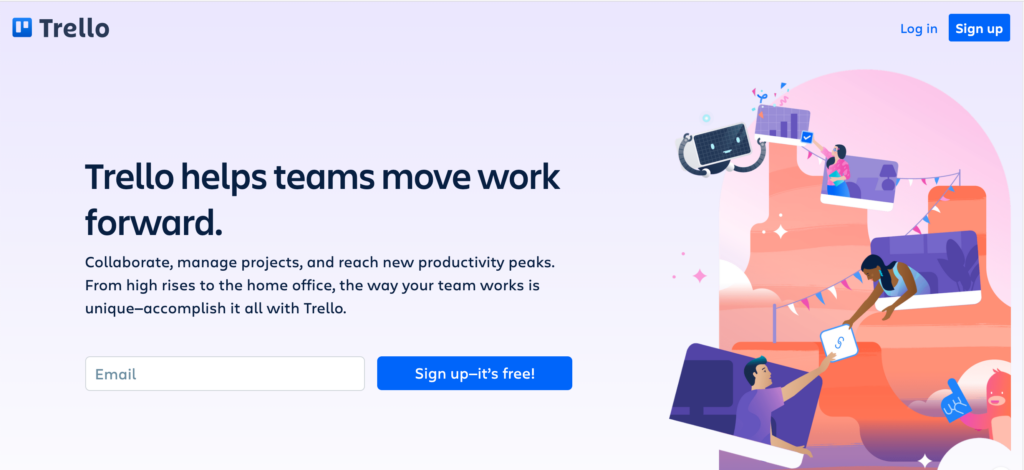
See a sneak peak at what Trello can offer, starting at 01:07.
Personality Type #2: The Bulletinaire
A close relative to our sticky note aficionados is our bulletin (and whiteboard!) enthusiast.
You are someone who took it up a notch and went from sticky notes to push pins and tape and who enjoys mixing mediums in your planning. You’ve got the scraps of paper, the newspaper clippings, and the meeting agenda.
Suppose you are someone who finds yourself having the most luck when you’re able to mix different styles and arrange them in a very particular format. In that case, you’re probably going to find digitizing a bit uncomfortable.
But if you are committed to digitizing your processes, the best project or task management system for you might be something like Milanote.
Milanote is (kind of) like a whiteboard and canvas, but with a bit more of a creative skew than just whiteboard tools like Miro and Whimsical.
It allows you to pull in images easily and make your setup more aesthetically pleasing.
For those of you who are used to using mood boards, bulletin boards, or whiteboards to organize your life, feelings, and lists — Milanote is our suggested tool for you.
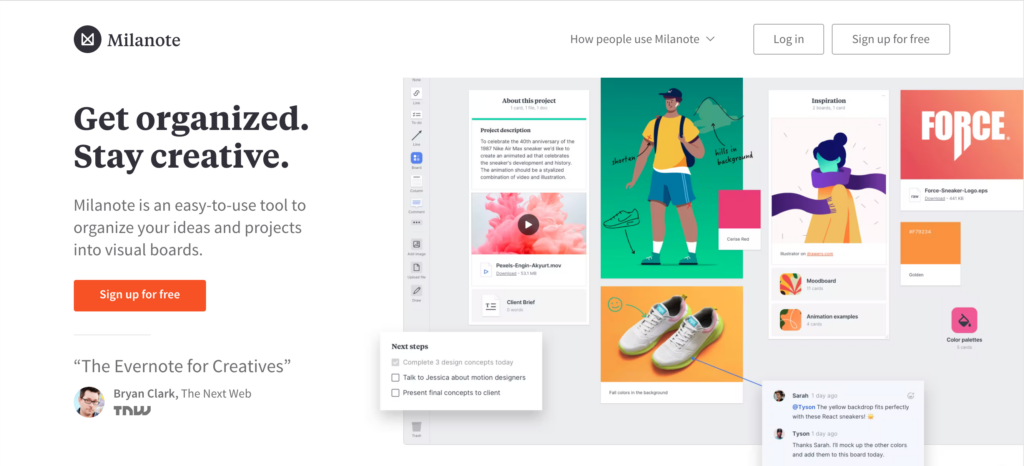
Hear Layla expand on this starting at 02:18.
Tired of learning ClickUp the hard way? Maybe it’s time you and your team check out our How to ClickUp Mini Course to master the ClickUp basics in less than ONE day!
Personality Type #3: The Bullet Journalista
Bullet journaler minds work differently than the other first two personality types.
You dedicate the extra time to spacing out all of your items, color coordinating, and using iconography.
Sections and codes, layouts, and goal setting are all done manually.
To emphasize order and customization into the digital space, our suggestion here is Notion.
Notion is similar to a flexible canvas with a sort of doc-based structure. It allows you to organize all kinds of data using database elements, while also having a lot of aesthetic and organizational features, too.
(Note: A few months prior to the time of recording this video, Notion did purchase automate.io, so this recommendation may change in the future. But at the time of recording, Notion is still overwhelmingly a manual system.)
People who enjoy that meditative work of manually creating links and organizing their bullet journal will find Notion delightfully manual in a digital space.
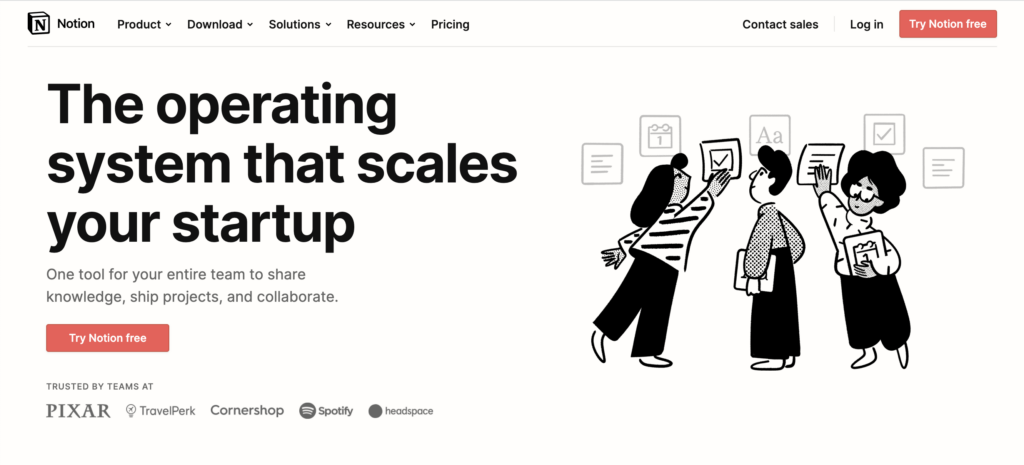
Learn more about Notion starting 04:22.
Personality Type #4: The e-Inbox Hoarder
The Inbox Hoarder manages their entire life out of their email inbox. Everything they need to do, even if it’s a quick thought they had at the grocery store, gets somehow directed to their inbox.
They start and end their day with their email inbox. It’s usually paired with a label and folder system and (maybe) a few forwarding automations.
While insanely productive in their own right, the Inbox Hoarders tend to feel a bit isolated in their inbox world — especially when including other people into their workflow.
Our project management suggestion that we feel is the closest match to the Inbox Hoarders’ existing status quo is Basecamp.
Basecamp is a task management tool skewed towards teams in the service space because things are very grouped around projects.
If you are someone who’s used to already compartmentalizing everything into folders and subfolders or sub-labels inside your inbox, you’ll find Basecamp a pretty similar style of organization.
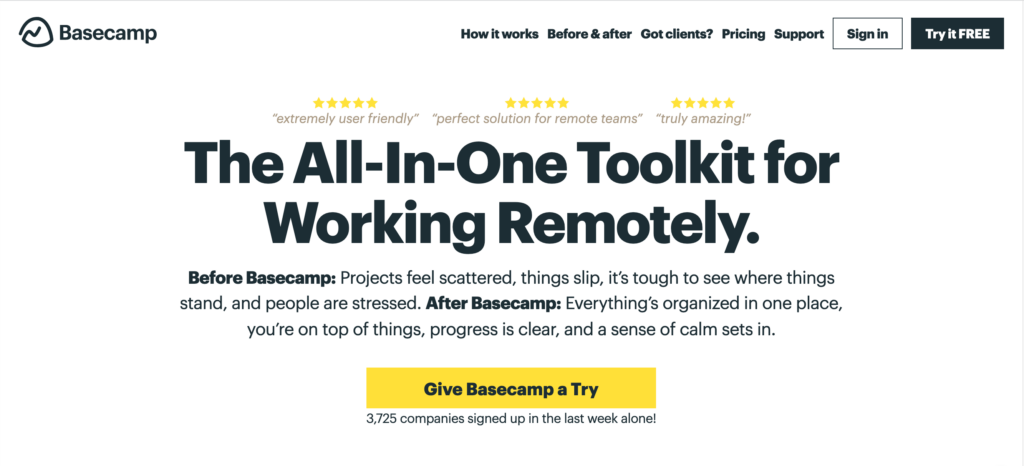
Layla expands on this tool starting at 05:44.
Personality Type #5: The Spiral Savant
Those who rely on spiral-bound notebooks are closely related to our bullet journalers. Maybe they have even done a little bit of bullet journaling at some point, but they find themselves wanting a bit more flexibility.
The spiral-bound notebook personality type may have a few sections inside their notebook(s). They have running lists of things they need to do, and they work through those lists, mark items off, and move on to the following list.
There may be some separation of “here’s my someday list,” “here’s my today list,” etc. but, the lists are there, and that trusty notebook follows them everywhere.
This personality type differs from the bullet journaler because they’re not quite getting that meditative effect of organizing or taking the time to really reflect on their work like those who gravitate towards bullet journals do.
The spiral-bound notebook personalities tend to be a tad more action-oriented. They need a place to get ideas out of their head quickly, keep track of tasks, and cross them off.
If you want to bring your practices online, and you’re the spiral notebook type, Asana is an obvious pairing for you.
Asana is a no-nonsense, straightforward task management system, and is pretty much as close as you can get to that spiral-bound notebook.
You can have several lists and organize your tasks into those lists.
And just like the spiral-bound notebook person ends up (most likely) having many binders or many spiral-bound books that they’re carrying around at all times — Asana is also built for having a lot of different teams or clusters of projects working together.
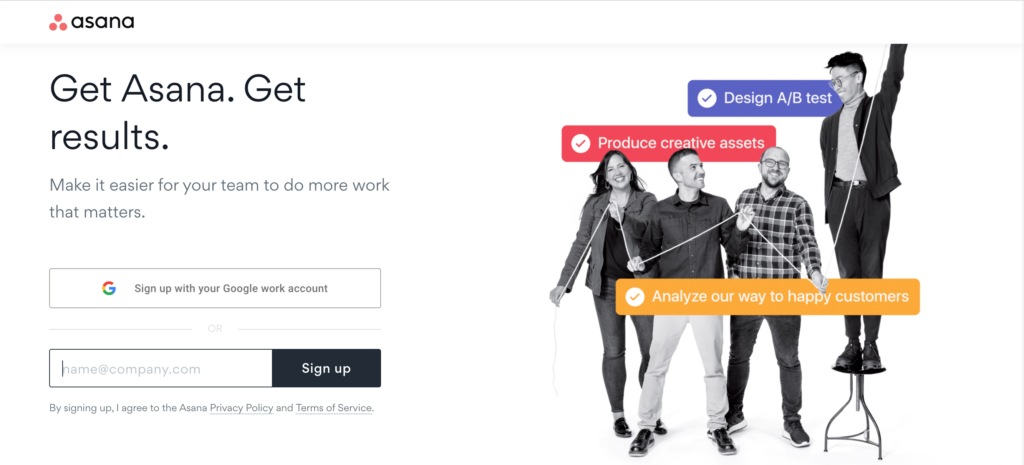
Get a sneak peek inside Asana starting at 07:39.
Personality Type #6: The People with Agendas
These are folks who are used to working on a week-by-week planner. They will often write down their tasks and then rewrite them in different organizations.
If you’re a student with this personality type, you might write down individual pieces of homework for each class. Then, you might rewrite that same information into one master task list in the evening. Later, you might rewrite all of that into a master list for the semester. You like to have a granular view of your information, and no detail is too small to include.
If you want to leave the paper agenda world behind, we have three suggestions for tech that might be right up your alley. (Lucky you!)
If you are switching into digital task management exclusively for yourself, Todoist is your one-stop-shop. This tool’s ability to understand natural language makes it really intuitive. It’s an absolute delight for those of you who love planners.
If you are not solo, however, and you are looking to bring that digital planner into a more collaborative space, that’s where ClickUp and Monday really have an edge.
Can’t decide between the two? Look back at your current analog habits.
If you are someone who has a paper agenda and you’ve been using that agenda the same way for the past, let’s say, 12 to 18 months or more, Monday.com is your tool. The consistency, polish, and care that goes into some of the release features would align more with your needs if you like that stability and consistency of having a known predictable structure.
However, if your agenda gets rearranged regularly, and sometimes you’d put due dates on the date of the week, sometimes you’d have a list section, or sometimes you’d be using reference notes — ClickUp is built for you.
ClickUp users tend to be more appreciative of flexibility. Like Monday or Todoist, you also have multiple ways to view the same information. However, ClickUp has a strong personality and is adamantly very forward-thinking. They’re constantly changing their platform, and that instability (which might sound like a negative to some) comes with many positives. The innovation and creativity behind this software lead to you getting the chance to test the newest, hottest features that often other tools then copy.
So, if you are someone that likes to mix things up to see what’s new, ClickUp is your best fit.
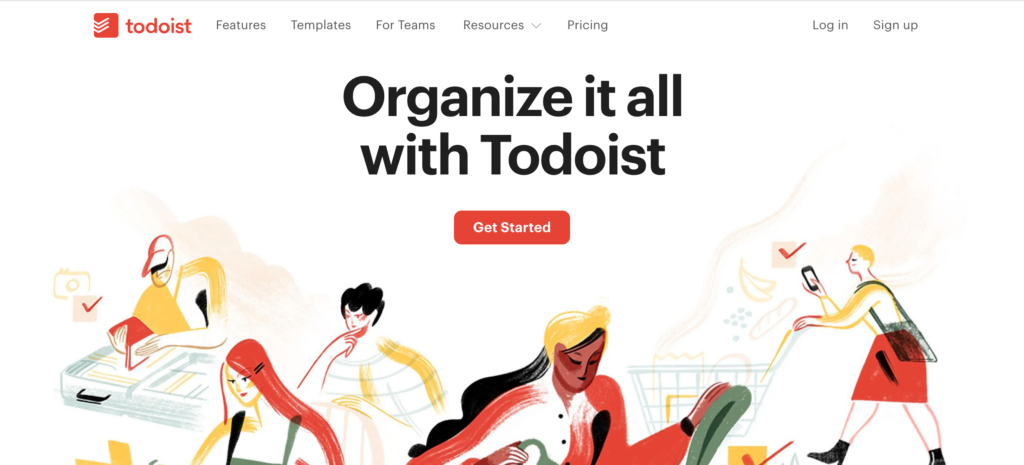
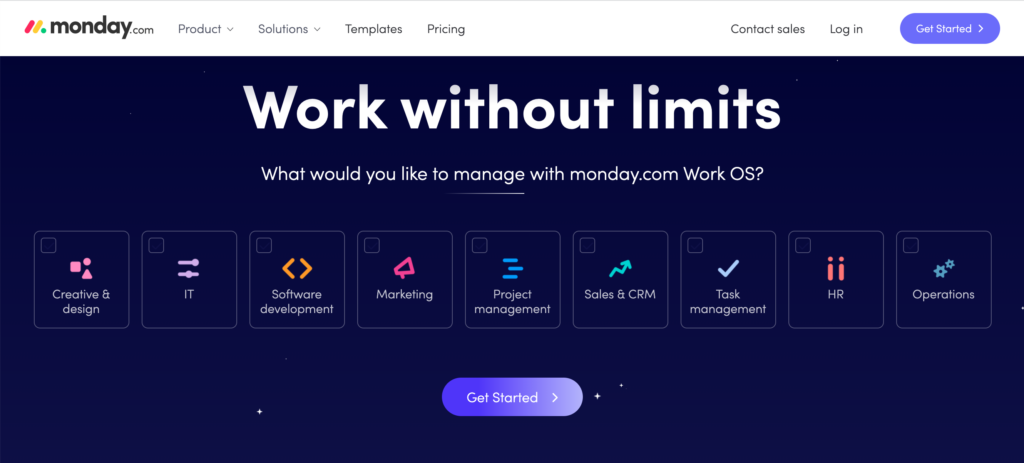
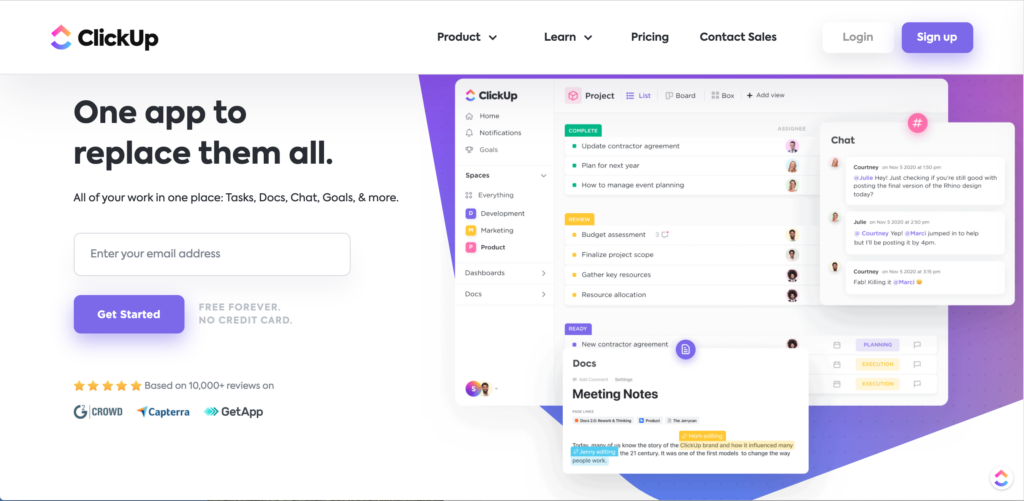
Learn more about the differences between these 3 options starting at 09:53.
So often, we see people who are trying to go from an analog system into a digital organization get burnt out, primarily because they’re testing the wrong tools first.
If we can find systems that closely correlate or are very similar to what you’re used to, well, that’s a lot easier. You’ve already got the hurdle of going digital. Why make it even harder by forcing your brain to work a way it doesn’t like to work?
Our goal inside the ProcessDriven Membership and on our YouTube Channel is to walk alongside you as you begin organizing your work and personal life, with the help of whichever fantastic tool helps you do so most effectively. Hopefully, this experimental content can help you find the perfect fit.
Until next time, enjoy the process.
Tired of learning ClickUp the hard way? Maybe it’s time you and your team check out our How to ClickUp Mini Course to master the ClickUp basics in less than ONE day!
